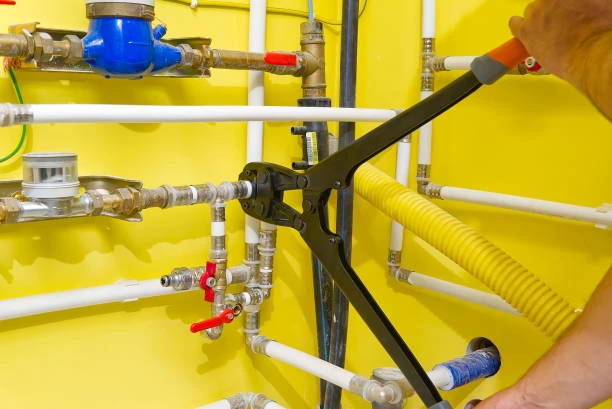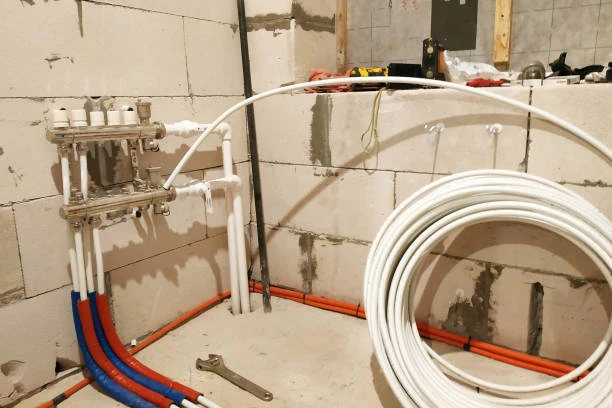As cities continue to modernize their infrastructure, the laying of gas pipes plays a crucial role in ensuring reliable energy supply. However, this necessary work often comes with significant disruptions, including road closures. Next year, a planned project to lay gas pipes is set to close roads for a four-month period, prompting discussions about the implications for local residents, businesses, and traffic management. This article will delve into the details of this project, the importance of gas pipes, the expected challenges, and what residents can do to prepare.
The Importance of Gas Pipes
Gas pipes are essential for transporting natural gas from production sites to consumers. They facilitate heating, cooking, and powering appliances in homes and businesses. The benefits of a well-maintained gas pipeline system extend beyond convenience:
1. Energy Reliability
Reliable gas supply is critical for both residential and commercial sectors. Interruptions can lead to significant inconveniences and economic losses.
2. Environmental Benefits
Natural gas is a cleaner-burning fuel compared to coal or oil, producing fewer greenhouse gas emissions. Efficient gas pipelines contribute to a more sustainable energy landscape.
3. Economic Growth
A robust gas pipeline network supports local economies by providing energy for businesses and industries, fostering job creation and economic development.
Project Overview
The upcoming project to lay gas pipes will take place over four months, necessitating road closures that will impact traffic patterns and accessibility. Here’s what we know about the project:
1. Timeline
The project is scheduled to begin in early spring next year and will continue through the summer months. The specific dates will be communicated to the public as the project approaches.
2. Scope of Work
The project will involve digging trenches to lay new gas pipelines, which requires heavy machinery and labor. Crews will work in sections to minimize disruptions and complete the project efficiently.
3. Affected Areas
Roads in and around the construction sites will be closed to ensure safety for workers and pedestrians. A detailed map showing affected areas will be made available to residents.
4. Traffic Management
Local authorities will implement traffic management plans to reroute vehicles and minimize congestion. Signage will be placed in advance to inform drivers of closures and detours.

Challenges Ahead
While laying new gas pipes is essential, it does come with challenges that both the project team and the community will need to navigate:
1. Traffic Disruptions
Road closures will inevitably lead to increased traffic in surrounding areas. Commuters may experience longer travel times, and businesses may see reduced foot traffic.
2. Safety Concerns
Construction zones pose safety risks for both workers and residents. Maintaining safety protocols and ensuring public awareness will be critical during the project.
3. Weather Impacts
Adverse weather conditions can cause delays in construction. Rain, snow, or extreme heat may affect the schedule and efficiency of the work.
4. Community Engagement
Keeping the community informed and engaged throughout the project is essential. Ensuring that residents understand the benefits and timelines can foster cooperation and patience.
Preparing for the Project
Residents and businesses can take proactive steps to prepare for the upcoming road closures:
1. Stay Informed
Follow updates from local authorities and the utility company overseeing the project. Regular announcements will provide the latest information on timelines, detours, and safety measures.
2. Plan Alternative Routes
If your daily commute involves roads that will be closed, plan alternative routes in advance. Familiarize yourself with detours to minimize disruptions to your routine.
3. Support Local Businesses
During the construction period, support local businesses that may be affected by reduced foot traffic. Consider visiting shops and restaurants that rely on your patronage.
4. Communicate with Neighbors
Share information about the project with neighbors, especially those who may not have access to local news. Building a sense of community can help everyone navigate the disruptions together.
5. Practice Patience
Understand that the project aims to improve energy infrastructure for everyone in the community. Practicing patience and understanding during this period will make the process smoother for all involved.
Benefits of the New Gas Pipeline
Despite the inconveniences posed by road closures, the new gas pipeline will yield several benefits:
1. Enhanced Safety
Upgrading old gas pipelines reduces the risk of leaks and explosions, ensuring a safer environment for residents and businesses.
2. Increased Capacity
The new pipeline will enhance the capacity to transport natural gas, accommodating future demand as the population grows and energy needs increase.
3. Improved Efficiency
Modern pipelines are designed for improved efficiency, reducing energy loss during transport and contributing to a more reliable gas supply.
4. Support for Renewable Energy
A robust gas infrastructure can support the integration of renewable energy sources, providing a balanced energy mix as the world transitions to cleaner alternatives.
Conclusion
The planned project to lay gas pipes next year, while resulting in road closures over a four-month period, represents a necessary step toward enhancing the region’s energy infrastructure. By understanding the importance of gas pipes, preparing for the disruptions, and staying informed, residents can navigate this transition more smoothly. Ultimately, this project promises long-term benefits, including improved safety, capacity, and efficiency in natural gas transportation.
FAQs
- Why are gas pipes important? Gas pipes transport natural gas for heating, cooking, and powering appliances, contributing to energy reliability and economic growth.
- What should residents do during the road closures? Residents should stay informed about the project, plan alternative routes, support local businesses, and practice patience.
- How long will the road closures last? The road closures will last for four months, beginning in early spring next year.
- What safety measures will be in place? The project team will implement safety protocols to protect workers and the public, and signage will inform residents of potential hazards.
- What are the benefits of the new gas pipeline? Benefits include enhanced safety, increased capacity, improved efficiency, and support for renewable energy integration.
















